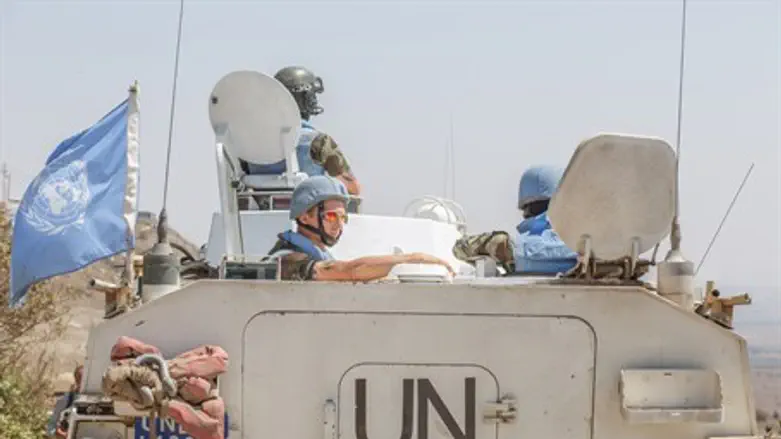
A draft UN report has revealed that UN peacekeepers routinely flout a ban of the international organization and pay for sex with money, dresses, jewelry, perfume, cell phones and other items in a flagrant exploitation of poverty-stricken populations they are meant to protect.
Reuters received a copy of the draft report, which was conducted by the UN Office of Internal Oversight Services (OIOS), and detailed how UN forces bought the sexual services of hundreds of women in Haiti and Liberia who said they were forced to sell their bodies due to hunger and poverty.
"Evidence from two peacekeeping mission countries demonstrates that transactional sex is quite common but underreported in peacekeeping missions," concluded the OIOS report, which was dated May 15.
The reportedly common practice may have wide-reaching consequences, as the UN deploys 250,000 peacekeeping troops, police and civilians in 16 global operation.
"The number of condoms distributed, along with the number of personnel undergoing voluntary counselling and confidential testing for HIV...suggest that sexual relationships between peacekeeping personnel and the local population may be routine," noted the report.
A UN bulletin back in 2003 forbid peacekeepers from buying sex for cash or goods, the report added, noting that the step was taken because the practice severely harms the international body's credibility.
Breaking down the numbers, the report listed 480 allegations of sexual exploitation and abuse committed by UN peacekeepers between 2008 and 2013; in 2014 another 51 complaints were filed - however, the report acknowledged there is likely heavy underreporting.
Making the phenomenon even more damaging, between 2008 and 2013 a full third of the cases involved children.
"Despite continuing reductions in reported allegations, that are partly explained by underreporting, effectiveness of enforcement against sexual exploitation and abuse is hindered by a complex architecture, prolonged delays, unknown and varying outcomes, and severely deficient victim assistance," OIOS said.
The worst offenders were peacekeeping missions in the Democratic Republic of Congo, Liberia, Haiti and South Sudan.
Anneke Van Woudenberg, Africa deputy director at the NGO Human Rights Watch, told Al Jazeera on Thursday, "this is something that we have seen in many countries of the world where the UN is operating and it has been a problem that has been going on for many years."
She noted immunity from prosecution is a key problem, saying, "if those peacekeepers commit crimes (while on mission), they cannot be held to account in those countries. They can only be held to account in their home countries, and far too often this immunity is like a protective cloak."